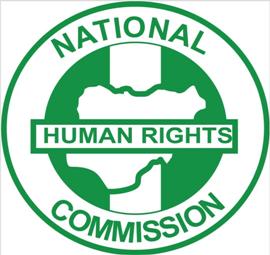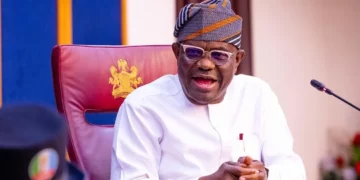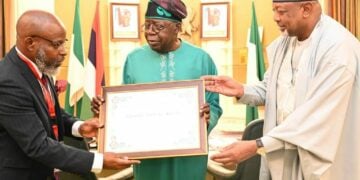As Nigeria joins the rest of the global community to commemorate World Radio Day 2025, the National Human Rights Commission (NHRC) has reaffirmed its commitment to utilising radio as a powerful tool for human rights education and awareness.
The commission’s executive secretary, Dr Tony Ojukwu SAN, emphasised this commitment in his message marking the World Radio Day and recognised the role radio plays in addressing climate change and its impact on human rights.
He noted that radio remains indispensable for advancing human rights, reaching vast and diverse populations, including marginalised and rural communities, and fostering informed public discourse.
Ojukwu highlighted that this year’s theme, “Radio and Climate Change,” underscores the importance of leveraging radio to amplify critical conversations on environmental sustainability and its intersection with human rights.
He stressed that climate change significantly threatens fundamental rights such as life, health, food, water, and shelter, particularly for the poor and vulnerable communities.
“The commission recognises climate change is not just an environmental issue but a human rights issue. Rising temperatures, extreme weather conditions, and environmental degradation disproportionately affect the most vulnerable populations, including women, children, persons with disabilities, and those in rural areas. With its vast reach, radio plays a crucial role in educating the public, advocating for climate justice, and empowering communities to take meaningful action.
“We urge all stakeholders to support initiatives that harness the power of radio to raise awareness on respect for human rights, promote dialogue, and drive action on both human rights and climate change,” he said.
The human rights boss further revealed that his commission is working towards establishing a professionally operated human rights radio station that focuses on respect for people’s rights to enhance awareness, provide timely information on rights violations, and encourage proactive engagement on human rights and climate-related issues. According to him, the commission receives over two million complaints of human rights violations annually, a figure attributed to increased awareness—an effort in which radio has been instrumental.
Dr Ojukwu reiterated that the commission will continue collaborating with media professionals, civil society organisations, and government agencies to ensure that radio remains a catalyst for positive change and respect for human rights. “We urge all stakeholders to support initiatives that harness the power of radio to raise awareness on respect for human rights, promote dialogue, and drive action on both human rights and climate change,” he said.
The human rights advocate further called on media practitioners and policymakers to use radio for advocacy, policy influence, and grassroots mobilisation in tackling human rights violations and climate challenges. “As the world grapples with the realities of climate change, a human rights-based approach to environmental policies is crucial in ensuring justice and equity for all,” Ojukwu added.





